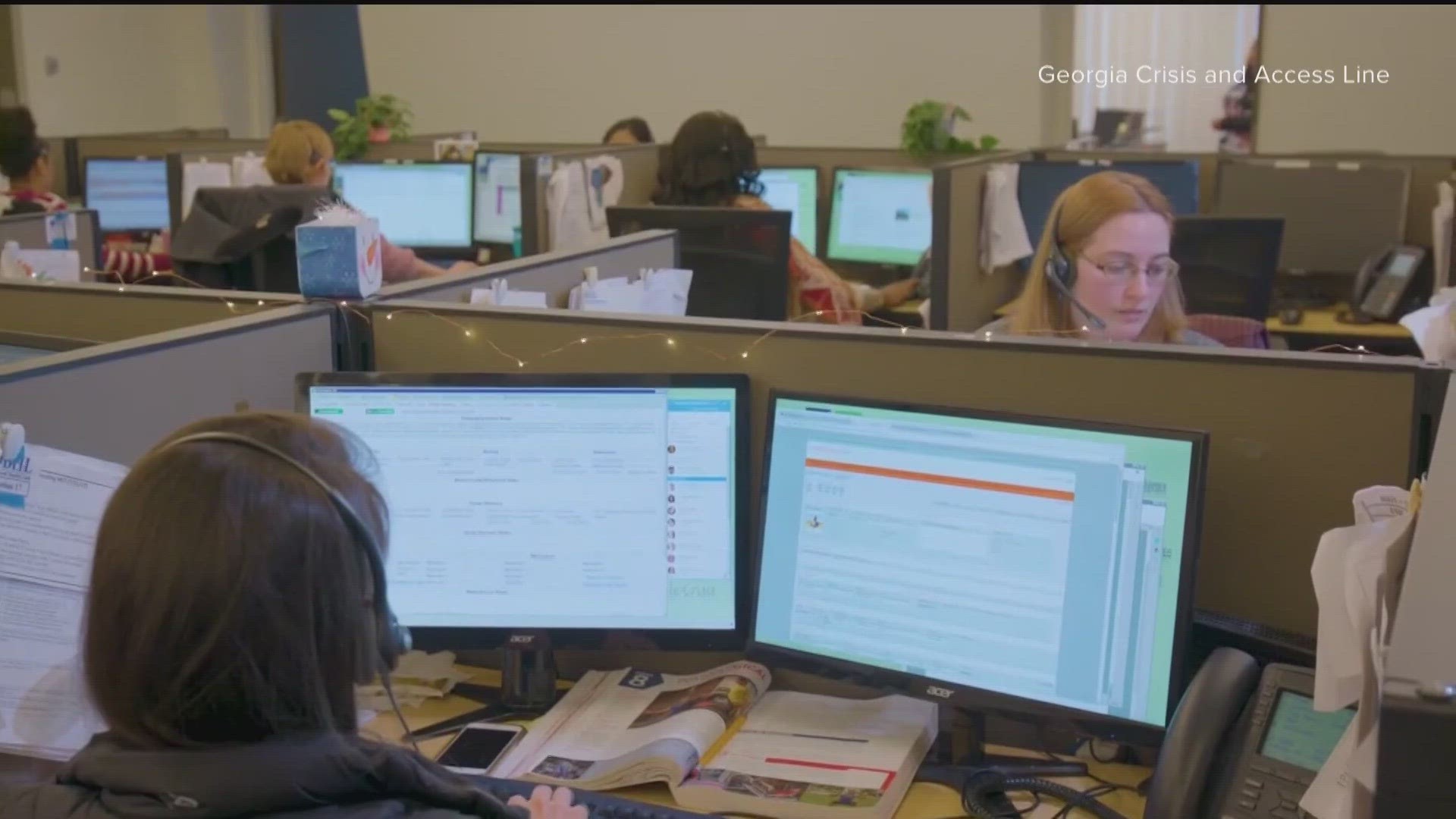ATLANTA — Georgia has received praise nationwide for its mental health overhaul last year along with its 988 rollout in July 2022. However, some lawmakers and organizations are expressing concern over budget cuts to the state's 988 hotline support.
The 988 crisis hotline was rolled out in the hopes of more effectively getting people the help they need and decreasing the stigma around mental health. The hotline focuses on emergencies like suicide calls, struggles with substance use and mental health crises.
Natasha Clark works with the Georgia chapter of the National Alliance on Mental Illness, a nonprofit that responds to mental health needs in the state. She said she had received positive feedback since the launch of the 988 hotline.
"It's an easier number for them to remember, and the way they have access to that number – whether through a phone call, a text or they can chat with somebody – they've had nothing but good feedback for me," Clark said. “They have had nothing but good things to say because it’s been easy, they’ve been heard and they’ve been helped.”
Experts with the Substance Abuse and Mental Health Services Administration said since the rollout of 988, the hotline has gotten around 3.6 million calls, texts and chat messages. They also said response times to mental health calls have dropped dramatically. SAMHSA held a town hall in Atlanta Friday to review the progress that had been made since 988 was launched.
"I think 988 does a huge service for the people of this state who might've been afraid to reach out because of whatever bias they may have had about mental illness or substance use disorder," Ashley Fielding, assistant commissioner of agency affairs with the Georgia Department of Behavioral Health and Developmental Disabilities, said. “People are in distress, but I think it’s a hopeful thing, that people feel like it’s OK to say 'Hey, I’m not OK.”
Fielding said the agency received about $100 million in additional funding in the next state budget. She said while the money will help maintain crisis beds and mobile crisis response, GA DBHDD continues to deal with workforce shortages. Just a few weeks after signing the FY2024 budget, it was announced that Gov. Kemp denied around $2.2 million earmarked for 988 funding in that same budget.
The line-item veto in the budget states the funds would "go to the hotline rather than direct response services for those in crisis" and call volume had not justified the increase in funding.
However, state officials said 988 has led to a 12% increase in call volume since last year, and Georgia's crisis line has had a 40% increase in call volume since the pandemic began. Demand is growing especially fast in rural communities, according to mental health advocates in Georgia.
"Our crisis centers are staffed with nurses, and many nurses are leaving the profession and going into different aspects of using their degrees," Fielding said. "Fifteen percent of our crisis beds can be offline any given week just because of the workforce shortages we’re experiencing in the state. But what we're focused on is making sure we do the best job that we can with the resources we have available."
State officials expect the demand for 988 to spike once marketing efforts ramp up in the next year. 11Alive reached out to the governor's office for comment on the veto of the 988 hotline funding but did not hear back.

